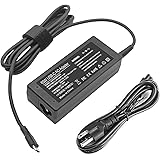
Credit: Unsplash/CC0 Public Domain
New York City Mayor Eric Adams came in for criticism in early 2022 for suggesting that low-paid workers such as restaurant and retail staff were low-skilled and did not “have the academic skills to sit in the corner office.“
A Singapore Management University researcher, Assistant Professor of Marketing Shilpa Madan, says the Mayor’s comments represent “a widespread perception that keeps coming up in public discourse. People don’t think twice before saying that workers in low-paid jobs do not need skills or intelligence.”
It may come as a surprise to many—if not a shock—that about 53 million Americans, or 44 percent of the workforce, are in low-paid jobs, often unable to afford necessities such as food and shelter. And many of those working in restaurants must rely on tips to get by.
The SMU researcher, who joined the Lee Kong Chian School of Business in July 2023, says low-wage workers’ compensation is an important topic because “extensive research shows that poverty prevents people from flourishing. It has so many negative consequences—it increases stress, makes people take more risks, and impedes cognitive functioning.”
Her paper, ‘Support for Increasing Low-Wage Workers’ Compensation: The Role of Fixed-Growth Mindsets About Intelligence’, co-authored with four other researchers, was published in the Journal of Experimental Psychology: General in 2023.
“The idea behind this research was just to understand the debate around increasing the minimum wage. As in many countries around the world, despite seeing that people are living below the poverty line, organizational leaders continue to comply only with the minimum established compensation standards which have not been raised nationally in the US since 2009.”
Why, then, the study of growth and fixed mindsets? Professor Madan says she has been conducting research on mindsets since her graduate school days and has an active research stream on the effect of mindsets on societally relevant outcomes.
“People seem to have this stereotype that low-paid or minimum wage jobs do not require any particular skill, intelligence or competence. They feel that anyone can flip burgers, be a janitor or a waiter, and they characterize the people who do these jobs as unskilled and unintelligent.”
“This language is very mindset resonant because mindsets are your beliefs about whether a particular trait or attribute is malleable or fixed.”
“We therefore came up with the idea that if you believe that people’s abilities cannot be developed (that is, a fixed mindset), you might oppose increasing low-wage workers’ compensation. However, if you do believe intelligence can be developed, which is a growth mindset, you’d just think they are doing these low-wage jobs for reasons outside their control and not because they’re inherently lazy, unmotivated, or unskilled.”
The research, with its ten diverse studies, involved more than 3,000 participants, such as HR managers in the US and business owners in India. Other participants included a nationally representative sample in the US and residents in key swing states in the US to make sure the findings were robust and generalizable.
“The package of different studies is to ensure replicability and robustness across diverse contexts and populations to ensure that our effects are specific to the idea we’re talking about and not driven by other things. And to identify the underlying psychological mechanism that explains these effects.”
The researchers consistently found that participants with a growth mindset supported increasing low-wage workers’ compensation more than those with a fixed mindset.
While this topic is highly politicized in the US, they found that this pattern held across the political spectrum and social classes.
“Our findings suggest that anyone seeking to garner support for increasing low-wage workers’ wages might consider encouraging growth mindsets about intelligence.”
To ensure their research reaches a wider audience, Professor Madan and her co-authors have recently published an article in the Harvard Business Review on the topic, and are working on an op-ed to target a more mainstream audience.
“I think the biggest contribution of this paper is that a lot of research into growth and fixed mindsets has focused on managers, knowledge workers, and the upper echelons of organizations.” For instance, she says, Satya Nadella, the CEO of Microsoft, has often spoken about growth mindsets. “But mindsets are not just meant to benefit people in executive roles.”
“Our research shows that mindsets can also improve the living conditions of people at the bottom end of the organizational hierarchy.”
Higher wages mean rising business costs, however, and some will argue that productivity also has to increase.
“That’s a great point. Research shows that if the minimum wage in the US were indexed to productivity, it would have been $23 an hour in 2021. The minimum wage in the US, though, has been stuck at $7.25 since 2009.”
Professor Madan says that by giving people a decent wage, productivity rises, and businesses actually do better. She points out that some major employers in the US that people like to work for, like Costco, pay more than the minimum wage and report benefits in terms of employee retention and well-being. Even so, many businesses continue to comply only with the federal minimum wage.
“That’s why this is a question that’s worth studying because there are differences in what people support and what they don’t.”
“To be clear, mindset is not the only or biggest factor that shapes people’s positions on low-wage workers’ compensation. It’s one of many factors but it’s a factor that can be changed.”
More information:
Shilpa Madan et al, Support for increasing low-wage workers’ compensation: The role of fixed-growth mindsets about intelligence., Journal of Experimental Psychology: General (2022). DOI: 10.1037/xge0001303
Citation:
Support for increasing low-wage workers’ compensation: The role of fixed-growth mindsets (2024, February 23)
retrieved 21 March 2024
from https://phys.org/news/2024-02-wage-workers-compensation-role-growth.html
This document is subject to copyright. Apart from any fair dealing for the purpose of private study or research, no
part may be reproduced without the written permission. The content is provided for information purposes only.
Note: This article have been indexed to our site. We do not claim legitimacy, ownership or copyright of any of the content above. To see the article at original source Click Here













